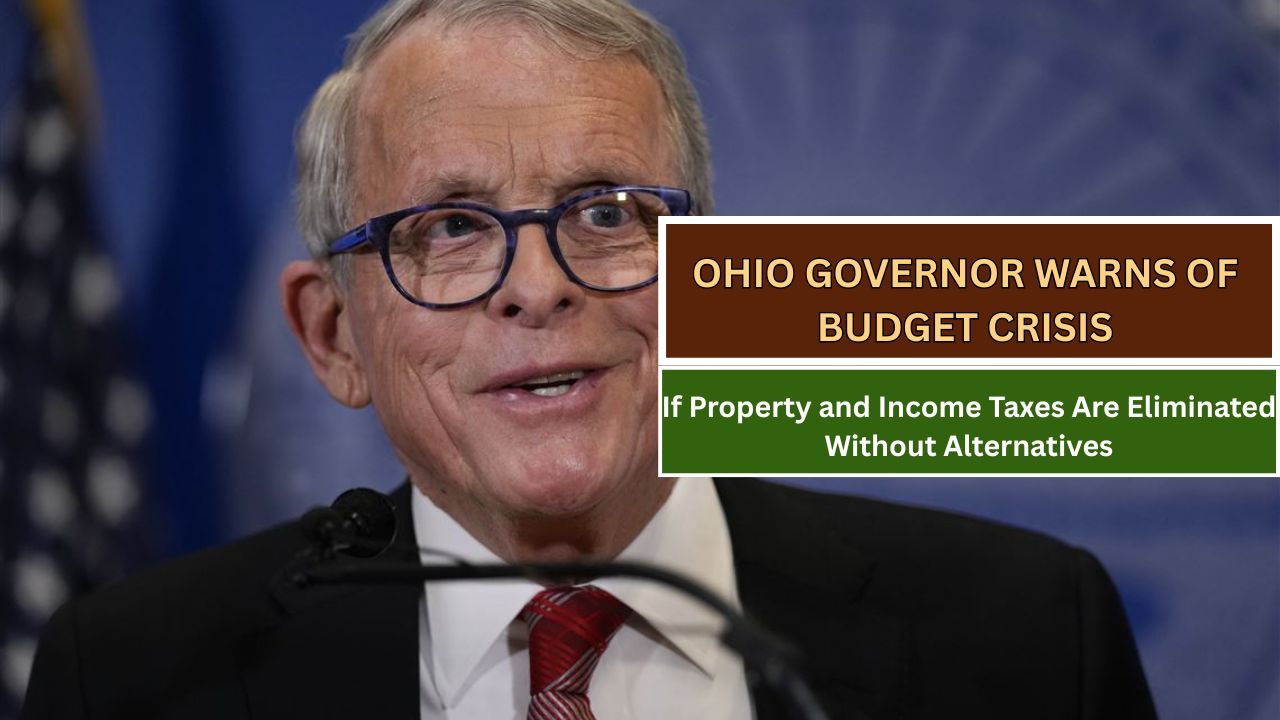COLUMBUS — Gov. Mike DeWine expressed strong concerns Monday over a proposed constitutional amendment that would eliminate property taxes, which fund Ohio’s schools and local governments.
“In a perfect world, we wouldn’t have any taxes, but that’s not the world we live in,” the Republican governor told reporters. “We have an obligation to help our kids.”
Supporters of the tax abolition plan are preparing to gather the required 413,487 valid signatures from registered voters by July 2 to place the proposal on this fall’s general election ballot.
“People have the right to put an amendment on the ballot,” DeWine acknowledged. “This happens all the time. The voters of Ohio vote, but obviously if we do away with real estate taxes, I don’t know how you fund our schools.”
The proposed amendment would give school districts, local governments, libraries, public transit agencies, parks, and other services that rely on property taxes just one year to find a new funding model. However, the amendment language doesn’t offer any alternative solutions.
This issue arises as some Republicans, including gubernatorial hopeful Vivek Ramaswamy, are also discussing the possibility of eliminating Ohio’s personal income tax.
“If you do away with the income tax, it’s a massive hole in the budget, and frankly, you would have to raise some other taxes,” DeWine said. “The only tax that’s left really to raise is the sales taxes.”
He added, “It would be a massive increase. It would be an unconscionable increase that would weigh most heavily on the poorest people of Ohio.”
DeWine’s current two-year state budget proposal includes no income tax cut. He argues that after years of tax reductions, Ohio’s income tax is already competitive with other states and no longer hinders economic growth.
The proposed constitutional amendment comes from a northeast Ohio group called Citizens for Property Tax Reform. Their proposal would ban all taxation of “real property”—defined as land, crops, buildings, or other permanent structures.
The group is aiming for the Nov. 4 ballot but could shift to a future election. Signatures gathered now could be reused later, but older ones may be ruled invalid if signers change their name, address, or voter registration status.
This article has been carefully fact-checked by our editorial team to ensure accuracy and eliminate any misleading information. We are committed to maintaining the highest standards of integrity in our content.

Outside of work, he enjoys playing chess, following cricket, and writing short stories. His commitment to integrity and in-depth analysis strengthens OTE News’ mission of providing trustworthy journalism.



